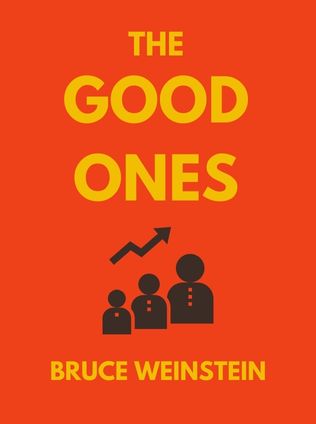
The Good Ones
Ten Crucial Qualities of High-Character Employees
By Bruce Weinstein
Published 05/2015
About the Author
Bruce Weinstein, Ph.D., is renowned as The Ethics Guy® and is a leading expert in ethics and character. He has appeared on numerous high-profile programs such as NBC's Today, ABC's Good Morning America, CNBC's Fast Money, and CNN, discussing ethical issues. With a background enriched by a National Fellowship in leadership development from the W.K. Kellogg Foundation, Bruce dedicates his work to helping organizations hire and promote individuals of high character. His book, The Good Ones: Ten Crucial Qualities of High-Character Employees, reflects his profound understanding of the integral role character plays in professional and organizational success.
Main Idea
The Good Ones emphasizes that character is the cornerstone of exceptional business success. Weinstein outlines ten essential qualities that define high-character employees, proposing that character, rather than merely knowledge and skill, should be a primary consideration in hiring and promotion decisions. Through compelling stories and practical advice, the book illustrates how qualities like honesty, courage, loyalty, and patience enhance employee satisfaction, client relationships, and ultimately, the bottom line.
Table of Contents
- Honesty
- Accountability
- Care
- Courage
- Fairness
- Gratitude
- Humility
- Loyalty
- Patience
- Presence
Character: The Missing Link to Excellence
At the heart of honorable behavior is character, which is revealed through actions rather than words. Character encompasses the most vital qualities that define a person's identity. In The Good Ones, these qualities are broken down into ten key attributes, each contributing to a person's high character and, consequently, to an organization's success. The author asserts that consistent effort is required to develop and sustain these traits, much like physical strength is built through regular exercise.
Honesty
Honesty is highlighted as the most critical aspect of good character. Bruce Weinstein shares the story of Brenda Harry, who found $3,100 in a jacket while working at Goodwill. Despite her financial needs, she chose to turn in the money, reflecting her deep-seated honesty. Weinstein stresses that honesty is more than just a policy; it is a fundamental orientation towards truth, and falsehood in any form is intolerable to honest individuals.
“Honesty isn't the best policy. It's the only one.” – Bruce Weinstein
Employers are encouraged to promote honesty actively and to seek employees who demonstrate this trait consistently. Evaluating honesty in job candidates can be done through insightful questions that explore past experiences and decisions involving truthfulness. For example, asking a candidate to describe a time when they had to tell an unpleasant truth to a direct report can reveal their commitment to honesty.
- "Tell me about a time when you had to tell a direct report an unpleasant truth. What were the challenges and how did you get past them? What were the consequences?"
- "Tell me about a time when you could have lied to a supervisor but chose to tell the truth. What happened?"
Accountability
Accountable employees are reliable, consider the consequences of their actions, take responsibility for their mistakes, and make amends. Weinstein quotes Ken Sundheim and Kevin Daum, both of whom emphasize accountability as a critical trait for productive and trustworthy employees. Weinstein suggests evaluating accountability through questions that reveal a candidate's work ethic and responsibility towards their duties.
“A strong work ethic is a component of accountability.” – Bruce Weinstein
Accountability in the workplace involves more than just doing one's job well; it also means owning up to mistakes and learning from them. This quality is crucial for building trust within teams and ensuring that projects are completed effectively and efficiently. Employers can gauge a candidate's accountability by asking about their typical working day and how they handle mistakes.
Sign up for FREE and get access to 1,400+ books summaries.
You May Also Like
The Subtle Art of Not Giving a F*ck
A Counterintuitive Approach to Living a Good Life
By Mark MansonRich Dad Poor Dad
What the Rich Teach Their Kids About Money - That the Poor and Middle Class Do Not!
By Robert T. KiyosakiHow To Win Friends and Influence People
The All-Time Classic Manual Of People Skills
By Dale CarnegieQuiet: The Power of Introverts
The Power of Introverts in a World That Can't Stop Talking
By Susan Cain



















